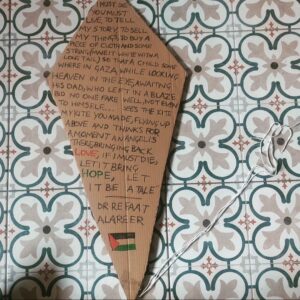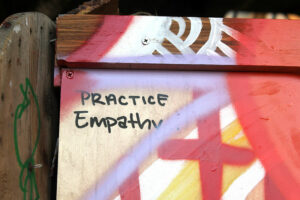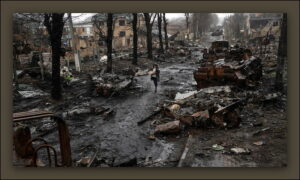What’s it like tackling rumours and myths on Whatsapp from Kenya to stop the spread of false information about Covid-19?
Africa Check’s Kenya editor, Alphonce Shiundu, gives an insider’s account and 5 lessons from the first year of the pandemic, cross-posted from Africa Check.
Africa Check has been debunking false information on WhatsApp with a focus on the Covid pandemic.
The viral circulation of false information online in Kenya – and in much of Africa – often mimics the oral manner in which rumours and gossip travelled the village grapevine.
With WhatsApp, people are likely to be in groups with their friends and relatives, or to message people they personally know and trust. The assumptions embedded in these personal relationships in a society with experiential and communal worldviews, such as innate accuracy, make WhatsApp a viable agent of misinformation.
So what did we learn? Quite a bit.
1. If a message is forwarded, it’s most likely unverified, and often false
The unverified content spread in many WhatsApp groups at the beginning of the pandemic was shared with good intentions. Those sharing it believed they were helping their kin and arming them with information to tackle the deadly virus.
A viral message in Kenya, for example, cited a baby as the source of a Covid cure: drink sugarless black tea at dawn! It was of course false, but the fear of the coronavirus, reverence for the authority of the elders and belief in miracles made many people act on it, and share this supposed cure.
Virologists told Africa Check the claim was a myth based on a misinterpretation of the healing effect of theophylline, a compound found in tea. In its pure form, the compound is used to treat pulmonary diseases but in tea the quantities are too minute to be effective.
By the time we were debunking this, thousands of people had already woken up early to try this remedy. The lesson is to inoculate the public against false information, arming them with the media and digital literacy skills to question the messages they receive.
2. The habitual misinformation spreaders need credible proof
“My aunt keeps sending rumours and alarming information to the family WhatsApp group,” one of our readers told us.
“When we call her out, she asks for proof. But our proof is never sufficient. Can you fact-check this, and send me the link as soon as you publish? That way, we can point her to Africa Check.”
Some of those sharing misinformation are tough customers. In one instance it was not enough to direct them to credible organisations such as the World Health Organization. They in turn cited a tweet in which the WHO said “the Chinese authorities have found no clear evidence of human-to-human transmission of the novel #coronavirus” as evidence that the agency was unreliable.
It was also of little use to explain to this group that in the early days of the pandemic little was known about the virus, and as this changed scientists and health authorities updated their advice, for example on wearing masks.
It is difficult to help readers recalibrate their knowledge to conform with the facts. There has to be a persistent effort to understand where readers are finding their information, explain the evidence and gently nudge them to reflect on the information they are sharing.
3. False information from public figures makes correcting misinformation difficult
Tanzania president John Pombe Magufuli claimed in church that his child was infected by Covid, but that after “inhaling steam, eating lemon and ginger”, the child was “cured and is now well and doing push-ups”.
“Huo ndio ukweli, na siwezi kusema uwongo mbele ya madhabahu hapa,” Magufuli told the congregation in Kiswahili. (Translation: “That’s the truth. I cannot tell lies in church!”)
Magufuli had also recommended inhaling steam at over 100°C, promising that it would “disintegrate” Covid, because the virus was just “fat”. The video of his speech made the rounds on WhatsApp, including in groups in Kenya.
When Magufuli spoke, the WHO had advised that there was no treatment for Covid, only for symptoms. While fact-checking the president’s claims, we found that neither ginger nor lemon could cure the disease. Inhaling steam at boiling point was dangerous, experts told Africa Check, and could lead to burns and scalds.
But even after laying all this out, the feedback on our fact-check did not address the evidence presented, but argued based on experiential knowledge that inhaling hot vapour was a “traditional” and “African” method that worked to treat flu and coughs, and would therefore cure Covid.
The learning point is that it is more important for leaders to vet their information. This is especially important in Africa, where in many areas communication and authority flow downward from community leaders.
4. If it is going viral in one country, it will show up in another – collaboration is key
The information gaps in the early days of the pandemic did not help matters. For example, people started sharing fake prescriptions from a hospital in India in WhatsApp groups in Africa. Those spreading this information forgot that drug prescriptions are not universal and are specific to a patient.
Another example was the false viral claim that African blood or black skin was immune to Covid. This popped up all over the continent and its diaspora.
To tackle the cross-border nature of misinformation, we tapped into the work of the CoronavirusFacts Alliance, a collaboration of global fact-checkers under the International Fact-Checking Network. The lesson here is to keep collaborating, as misinformation knows no borders.
5. Meet people where they are, in a language they understand
Initially, subscribers to Africa Check’s WhatsApp broadcast in Kenya received text-based broadcasts in one language. In 2020, we did the #KeeptheFactsGoing series, which comprised weekly episodes of voice notes, circulated on WhatsApp in English and Kiswahili.
The aim was to share fact-checking tips and tricks, and to bust myths about Covid in a short concise summary and in a format that would empower people to fact-check on their own.
The voice note was also circulated in isiZulu in South Africa, Wolof in Senegal and much of West Africa, and Hausa in Nigeria.
Fact-checking on WhatsApp is important, because false information ruins lives, informs poor policy choices, and harms personal responses to health crises.
To stay smart on WhatsApp, you can click on these links to subscribe to Africa Check’s broadcasts in South Africa, Kenya, Nigeria and Senegal.
- This report was written by Africa Check, a non-partisan fact-checking organisation. View the original piece on their website, published on December 10, 2020.
- Tagged as Covid-19, health, infodemic, Kenya, misinformation







